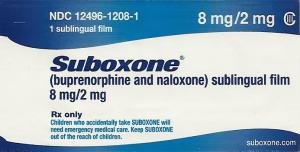
An Oklahoma psychedelic research bill advances minus a decriminalization provision, Mississippi regulators roll out initial guidelines for the state’s medical marijuana programs, and more.

The DOJ issues guidance on legal protections for people undergoing medication-assisted treatment. (Creative Commons)
Marijuana Policy
New Jersey Regulators Okay First Recreational Marijuana Sales. The state’s Cannabis Regulatory Commission on Monday opened the way to recreational marijuana sales by approving seven medical marijuana dispensaries to sell to anyone 21 or over. The commission’s executive director, Jeff Brown, said retail licenses could be issued within a month, once dispensaries pay fees and undergo compliance checks. The move comes more than a month after the state blew through a February 22 deadline for dispensaries to begin selling to adults. The commission had been concerned about maintaining adequate supplies for patients, but those concerns seem to have been assuaged. “All of the (dispensaries) here, we believe have proven and have shown that they have adequate supply for their medical patients, that they are willing to put in place the necessary mechanisms to protect that supply, and ensure that medical patients are not impacted,” Brown said.
Medical Marijuana
Mississippi Medical Marijuana Program Rules and Regulations Released. The state Health Department on Monday released preliminary rules and regulations for the state’s nascent medical marijuana program. These beginning measures address qualifying conditions, obtaining registry and identification cards, and how to certify as a practitioner, among other things. The list of qualifying conditions includes cancer, Parkinson’s, Huntington’s, muscular dystrophy, glaucoma, spastic quadriplegia, HIV, AIDS, hepatitis, amyotrophic lateral sclerosis (ALS), Crohn’s, ulcerative colitis, sickle cell anemia, Alzheimer’s, agitation of dementia, PTSD, autism, pain refractory to opioid management, diabetic/peripheral neuropathy, spinal cord disease, or severe injury; chronic medical treatment that causes cachexia or wasting, severe nausea, seizures, severe and persistent muscle spasms, or chronic pain. Patients may only get recommendations from doctors with whom they have an existing relationship and will pay $25 for a 1-year ID card. Those applications will be available on or before June 2.
Psychedelics
Oklahoma Senators Approve Psilocybin Research Bill but Remove Decriminalization Language Approved by House. The Senate Health and Human Services Committee voted unanimously Monday to approve a bill passed by the House that would allow eligible research and medical institutions to cultivate and administer psilocybin for research purposes, but only after amending it to remove a provision that decriminalized the possession of the drug. House Bill 3414 “came over [from] the House—it had some decriminalization elements in there,” Sen. Lonnie Paxton (R) said on Monday, adding that lawmakers had “worked a lot with it, trying to make sure that we clean it up.” They did that by erasing the decriminalization provision. “That no longer exists,” he said. “This is just for a university study.”
Drug Treatment
US Department of Justice Issues Guidance Concerning Legal Protections for Individuals Recovering from Opioid Use Disorder. The Justice Department published guidance last week explaining how the Americans with Disabilities Act (ADA) protects people who are in treatment or recovery for opioid use disorder (OUD), including those who take prescription medications as part of that treatment. The guidance says those people are considered disabled under the ADA, that they may be prescribed medications such as methadone, buprenorphine, and naltrexone, among others; and that employers may not discriminate against them if they are in treatment and using those drugs. The guidance also notes that while employers may conduct drug testing, they may not fire or refuse to hire people legally using those medications—unless the use renders the person unable to safely or effectively perform the job. DOJ said the guidance “is part of the department’s comprehensive response to the opioid crisis, which promotes prevention, enforcement and treatment” and lists several civil rights lawsuits it is pursuing over such discrimination.

